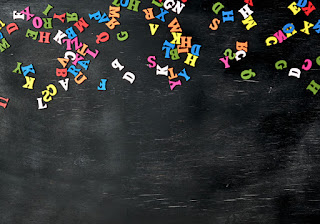Delicious Fonts: The Bread and Butter of Appealing Designs
For every Olympic Games, there has been an accompanying logo that brings a unique identity to that particular year while allowing the host country a special place in the global spotlight.
A good Olympics logo should reflect both the host country’s culture and the time period of the games. The 2012 Olympic logo caught a lot of flak for failing in both of these goals. Composed of bright pink and yellow colors, weird shapes, and a jagged, angular typeface, it smacked of an 80’s funk vibe rather than British culture or the London lifestyle. When it was revealed in 2007, a petition circulated Great Britain (signed by over 48,000 citizens) to have the £400,000 logo scrapped a redesigned.
Ije Nwokorie, managing director at the design firm that created the logo, defended the bold look:
“We wanted the logo, in particular, to make people reconsider Olympics, to think about them in a different way,” he said. “London is this kind of dissonant place that you discover new angles and new dimensions to things. In its highest level, this brand was an expression of that.”
Overall, the logo and font sparked more dissonance with the viewers. Many believe it went down in history as a failed experiment.
How to Pick the Best Font for Your Page
Typefaces are the personality on the page.
The way you represent words shapes the style and readability of your content. A font choice can have far-reaching effects, which is why brand style guides are extremely helpful.
But if you don’t have a grid to work from, the endless choices can feel daunting. Not sure where to start? Here are a few tips:
Set the Tone
What is the style of the document? What vibe should the content communicate?
Often the audience you target will shape the personality of your font choice.
Keep it Simple
Unless you are designing an art piece, stick to one or two typefaces. If you are designing for a document, like an annual report, you might need a sans serif and a serif for variety and legibility.
If you need lots of different headings and subheads, choose a font with a variety of weights (like Bahnscrift or Sabon). Display fonts are fun but don’t offer many choices when it comes to weights.
Make the Best Even Better
Want to inject personality in your text without getting too weird?
Customized fonts work beautifully for logos, headings, or a tagline splashed across the page. Try customizing your favorite fonts with tiny alterations, like this:
- Shorten the descenders on letters like y, p, and q
- Make the crossbars on a letter stop short on one side and cut the corners off letters at an angle (like a capital ‘A’ or a lowercase ‘e’
- Use a bold header and a blurred, slightly transparent subhead
- Erase or add to the font by uniquely featuring something relating to your brand (for example, a baker might use a font where a bite is taken out of every ‘B’)
Don’t Be Trendy
Marketers often choose a typeface because it seems cool at the moment, but the flair can quickly fade.
Like bad wallpaper in your grandma’s kitchen, faddish designs don’t age well. One rule of thumb is this: “If a typeface is quirky, your design might be a turkey.”
Classic fonts that have endured over decades include Bodoni, Bembo, Caslon, Clarendon, Helvetica, Gill, Univers, Baskerville, Perpetua, Futura, News Gothic, and Optima.
From selling products to creating brand loyalty, fonts create a smooth, intuitive journey for people to follow. A little adjustment to your fonts can go a long way!




Comments
Post a Comment